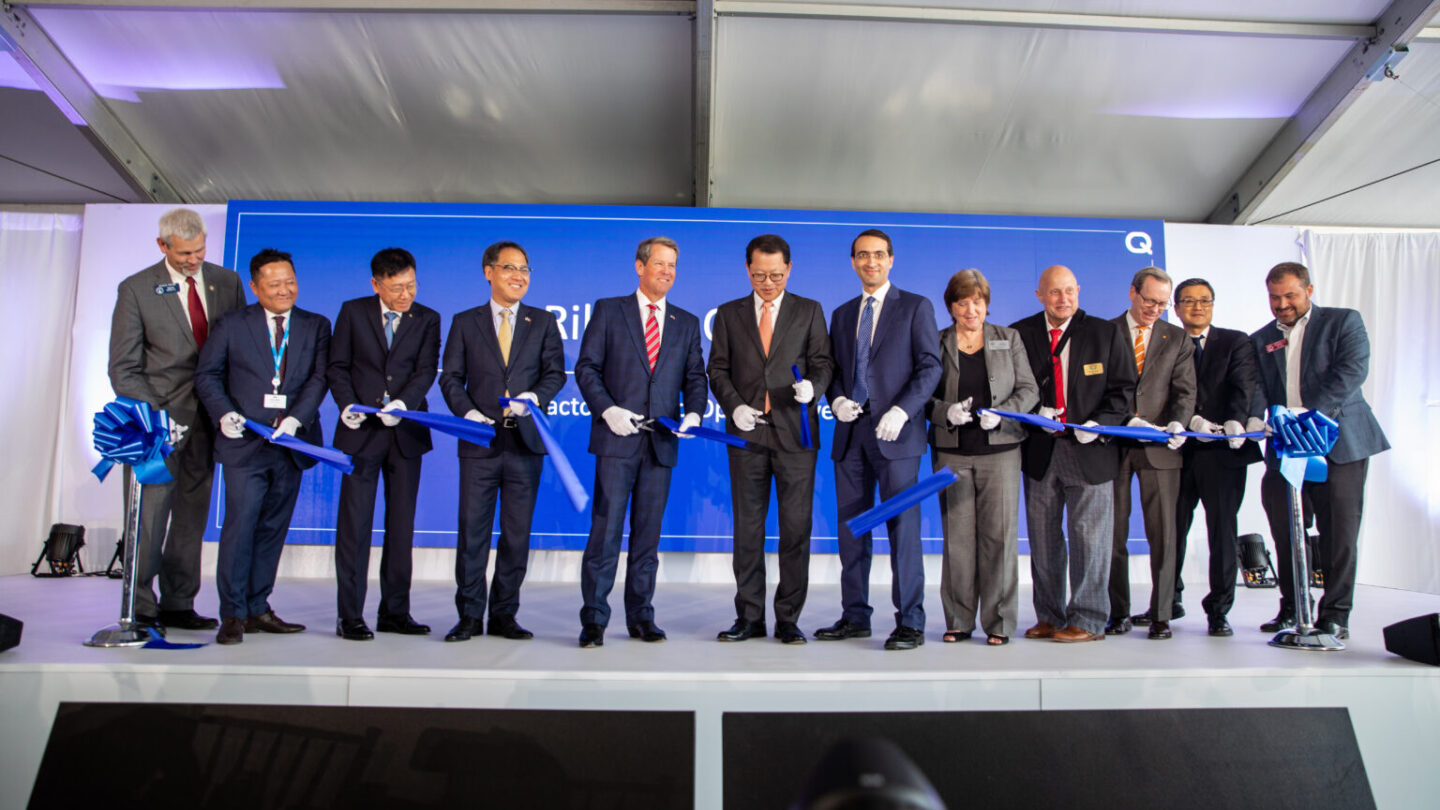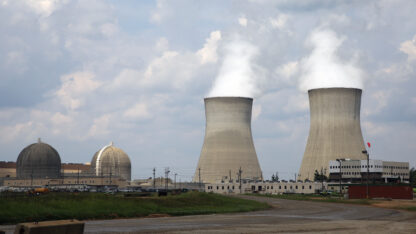Solar panel manufacturer Qcells plans to expand its Dalton plant – again – and build a new facility in Cartersville, which state leaders say is a $2.5 billion investment that will bring new 2,500 jobs to Georgia.
It’s also the latest in a string of high-profile green energy projects planned for the state.
The South Korean company plans to build a third facility in Dalton, where it opened the largest solar panel manufacturing facility in the Western Hemisphere in 2019. The fast-growing operation already expanded once last year.
The new site in Bartow County will employ 2,000 workers and manufacture 3.3 gigawatts of solar ingots, wafters, cells and finished panels. Qcells, which is owned by South Korea-based Hanwha Solutions, plans to break ground soon in the coming months.
“We are seeking to further expand our low-carbon solar investments as we lead the industry towards fully American-made clean energy solutions,” Qcells CEO Justin Lee said in a statement. “Today’s news is further evidence of our growing partnership with Georgia, the workforce there, and an even brighter future together.”









